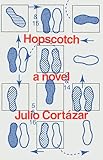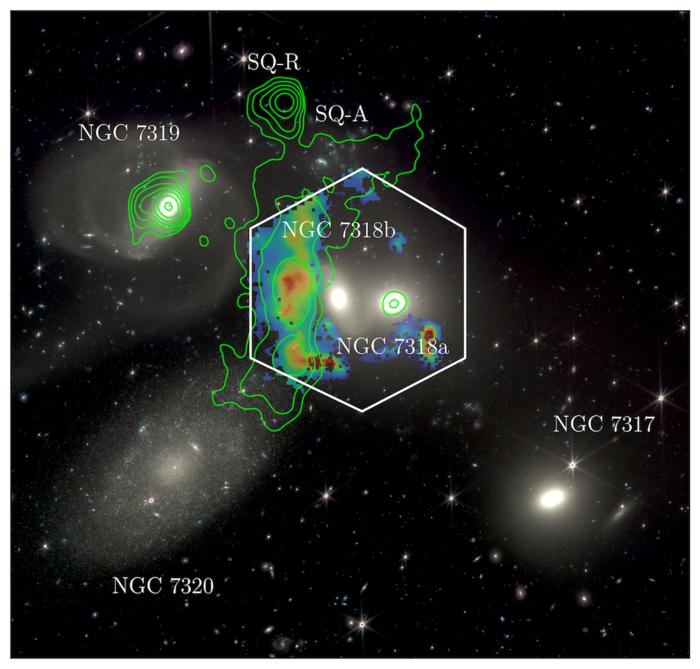The region, we’re told, extends from the deserts of Sonora to the straits of Tierra del Fuego, encompassing 7.7 million square miles that are home to 660 million people who share two Latinate languages: Spanish and Portuguese. What complicates the picture is that many in that vast expanse also speak Nahuatl, Quechua, and hundreds of other tongues. But it’s not just the language: the people of this region, we hear, are Catholic. Even if we set aside the fact that many of them are Pentecostal or Jewish, however, the Catholic traditions of Oaxaca would be unrecognizable to churchgoers from Rio de Janeiro. This inconvenient diversity perhaps explains why, when all else fails, we’re told that all of these people love to dance.
Still, isn’t it true that these people share a history of resistance to empire and colonialism? Perhaps. But it’s just as true that all of these countries continue to inflict colonial violence on Indigenous people and that their economic elites are composed almost exclusively of people who could accurately be described as white. Besides, long before the name of the region became a synonym for resistance against Yankee imperialism, the term was popularized by nineteenth-century Frenchmen who, finding it difficult to justify their imperial designs in a part of the world to which they had no connection, were forced to reach back to Ancient Rome and cast themselves as the champions of the “Latin race.”

 Even the borders are confusing. The region is generally understood not to encompass Belize, which was colonized by the British rather than the Spanish or Portuguese—but what about Quebec, which was also colonized by speakers of a Latinate language, or California, Arizona, New Mexico, and Texas, which only recently were colonized by the United States? And what to make of the fact that in 1994, when my own country, Mexico, entered into a free-trade agreement with the U.S., our leaders proudly declared that the nation had left behind the community of fellow-sufferers that the Cuban poet José Martí called “Nuestra América” to join “América del Norte”—a new imaginary region which these leaders, like the narrator of my first novel, would later be heartbroken to discover was not at all the same as what our American partners, both diplomatic and romantic, meant by “North America”?
Even the borders are confusing. The region is generally understood not to encompass Belize, which was colonized by the British rather than the Spanish or Portuguese—but what about Quebec, which was also colonized by speakers of a Latinate language, or California, Arizona, New Mexico, and Texas, which only recently were colonized by the United States? And what to make of the fact that in 1994, when my own country, Mexico, entered into a free-trade agreement with the U.S., our leaders proudly declared that the nation had left behind the community of fellow-sufferers that the Cuban poet José Martí called “Nuestra América” to join “América del Norte”—a new imaginary region which these leaders, like the narrator of my first novel, would later be heartbroken to discover was not at all the same as what our American partners, both diplomatic and romantic, meant by “North America”?
 What I’m trying to say is that, if one thinks about it for a moment, it becomes clear that “Latin America” does not exist as a material reality. Much like the utopia of transnational friendship envisioned by the Mexican architects of the North American Free Trade Agreement, the region exists only in the imagination—even if this imaginary existence (like those of God, race, and currency) makes it “real” enough to alter the course of history and shape individual lives. The problem is that, as the historian Mauricio Tenorio argues in Latin America: The Allure and Power of an Idea, our attachment to this fantasy does more harm than good: it’s a self-fulfilling prophecy that leads us to reduce an immense diversity of experience into a tidy package of stereotypes. We think twice before speaking of “Africa” or “Asia” as anything but arbitrary names for landmasses. Why, then, do we insist on speaking of “Latin American culture” as if the half-billion human beings who populate the region had anything in common beyond an accident of geography?
What I’m trying to say is that, if one thinks about it for a moment, it becomes clear that “Latin America” does not exist as a material reality. Much like the utopia of transnational friendship envisioned by the Mexican architects of the North American Free Trade Agreement, the region exists only in the imagination—even if this imaginary existence (like those of God, race, and currency) makes it “real” enough to alter the course of history and shape individual lives. The problem is that, as the historian Mauricio Tenorio argues in Latin America: The Allure and Power of an Idea, our attachment to this fantasy does more harm than good: it’s a self-fulfilling prophecy that leads us to reduce an immense diversity of experience into a tidy package of stereotypes. We think twice before speaking of “Africa” or “Asia” as anything but arbitrary names for landmasses. Why, then, do we insist on speaking of “Latin American culture” as if the half-billion human beings who populate the region had anything in common beyond an accident of geography?
This tendency to take fiction as fact is especially jarring when it comes to literature. The writers of the so-called “Boom latinoamericano,” for instance, certainly shared a great deal: a literary agent (the Spaniard Carmen Balcells, who was savvy enough to realize that packaging these writers as members of a regional movement would help position them in an increasingly globalized market), a love for American modernism (a rather un-Latin American predilection), a political disposition (it may well be that Latin America was most “real” in the years after the Cuban Revolution), and above all personal friendship. But to pretend that Gabriel García Márquez and Carlos Fuentes had more in common with each other in literary terms than the former had with William Faulkner and the latter with John Dos Passos is possible only if we read their work through a lens even more fictional than their novels: the notion that both of them wrote “Latin American literature.”

 Let me put it this way: Is Julio Cortázar’s Hopscotch a “Latin American novel,” even though it takes places mostly in Paris and is explicitly in conversation with the formal procedures of the nouveau roman rather than with those of the novela de la tierra? Was Roberto Bolaño a “Latin American writer,” even though he wrote his novels in Spain and set substantial portions of them in the United States, Israel, and Liberia? Can we say that Juan Rulfo’s fiction is “Latin American” when it has so little to say about Bolivia or Ecuador? We could go further: after the devastating critique of the notion of “Mexicanness” that Heriberto Yépez, a “post-national” writer from Tijuana, developed in The Empire of Neomemory and La increíble hazaña de ser mexicano, can we still speak of “Mexican literature” with a straight face?
Let me put it this way: Is Julio Cortázar’s Hopscotch a “Latin American novel,” even though it takes places mostly in Paris and is explicitly in conversation with the formal procedures of the nouveau roman rather than with those of the novela de la tierra? Was Roberto Bolaño a “Latin American writer,” even though he wrote his novels in Spain and set substantial portions of them in the United States, Israel, and Liberia? Can we say that Juan Rulfo’s fiction is “Latin American” when it has so little to say about Bolivia or Ecuador? We could go further: after the devastating critique of the notion of “Mexicanness” that Heriberto Yépez, a “post-national” writer from Tijuana, developed in The Empire of Neomemory and La increíble hazaña de ser mexicano, can we still speak of “Mexican literature” with a straight face?
In case you haven’t yet figured it out, this is a sore subject for me. I was born and raised in Mexico City, where I now live, but I became a writer during the 10 years I spent in the U.S. and wrote my first book in English. That I’m in good company on this point (Jorge Luis Borges also wrote in English, as did Fuentes, and more recently Yépez, Hernan Diaz, Valeria Luiselli, and Benjamín Labatut) matters little to some of my countrymen, who believe in the fiction of “Latin America” so strongly that they have a difficult time forgiving anyone who betrays our oppressed region by writing in the language of the Anglo-Saxon imperialists. This isn’t to say that I don’t love “Latin American literature”: I admire Cortázar and García Márquez as much as Henry Adams and James Baldwin. But if I had to define my writing in terms of a fictional region, I’d call myself a North American writer. The event that shaped the course of my life was not the Cuban Revolution but the signing of NAFTA. For better or worse, my work has more in common with those of my friends in New York and my classmates in Iowa City than with much of the writing published in Rio de Janeiro or Santiago de Chile, let alone in Indigenous languages.
The hostility I sometimes encounter when people in Mexico learn that I wrote a book in English has a mirror image north of the border: the tiresome American expectation that people from the continent where I was fortunate or unfortunate to be born should play the part of “Latin American writer.” I point this out, as Alfonso Reyes would say, “without vanity or resentment,” but not without exasperation. When my agent and I were trying to sell my novel, for instance, an American editor made it clear that she had found the parts of my book that are set in Iowa far less “authentic” than those set in Mexico. Had she found time to finish the book (she confessed she hadn’t) she might have discovered that those sections are essential to the narrative arc of the novel, which follows the wealthy Mexican protagonist as he watches his immigration prospects vanish under Donald Trump, who is perhaps our time’s firmest believer in the existence of “Latin America.” I couldn’t help noticing that the editor’s comments were rather similar to the advice offered by the main character’s MFA classmates, who early in the plot annoyingly encourage him to stop writing about Renaissance medicine and other Borgesian subjects and instead tell them about Mexico.
But there are few things more “Latin American” than complaining about U.S. provincialism. And so I’d like to conclude this rant by offering an alternative that could help us leave behind the notion that writing is (or worse: should be) determined by climate or genetics: instead of speaking of North American and Latin American writers, we should speak of Anglophone and Hispanophone literature. The stuff from which an author’s work is made is not the writer’s blood or their nation’s soil but the language in which they write. I’m not proposing that we leave behind politics or history when we consider literature; the best novels are sociology liberated from the tyranny of facts, and as such they can and should be interpreted from a social perspective. But such readings should always keep in mind that literature always exceeds the nationality of its author. It lets us cross borders and blur lines; it makes the familiar foreign and the foreign familiar; it demonstrates that origin is not destiny.
Writing and reading, like immigration, can allow us to become someone else. This is easy to see when we practice or enjoy literary translation, but even more so when we read or write in languages other than our own. Isn’t it true that, by writing in a language that wasn’t their mother tongue, Vladimir Nabokov and Joseph Conrad ceased to be Russian and Polish to become citizens of a linguistic homeland that knew no borders? Today, the classification of “Latin American literature” puts both Anglophone and Hispanophone writers in a double bind, whether it manifests as hostility to Mexican writers who work in English or as a lack of interest in Mexican writing about the U.S. It’s past time to lay “Latin American literature” to rest.

























































